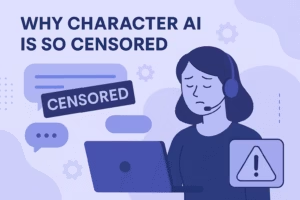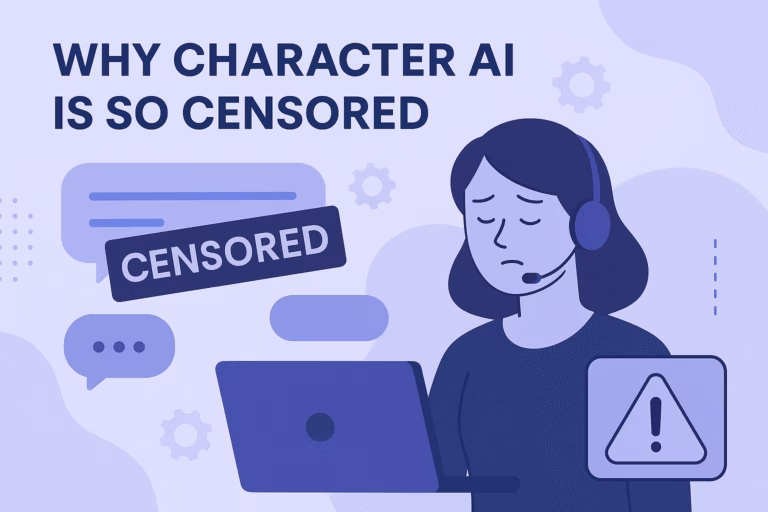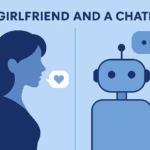Key Takeaways
- Character AI is heavily censored in 2025 because of legal, compliance, and brand safety pressures.
- Safety filters act as gatekeepers that intercept and rewrite responses before they reach the user.
- Creativity suffers when filters overcorrect, turning unique conversations into repetitive scripts.
- Communities adapt and migrate to platforms that allow realism without reckless content control.
- Nectar AI offers a balanced approach – memory-driven, emotionally intelligent, and far less restrictive than most mainstream systems.
- Trust creates better systems than overprotection. When users are treated like adults, authenticity thrives.
If you have ever chatted with a Character AI bot and got hit with “Let’s change the topic” right when things got interesting, you know the pain. It is like watching a movie that cuts to black before the final scene.
No warning, no closure, just silence.
By 2025, that moment has become a running joke online. Screenshots of censored replies flood Reddit threads every week. Users complain that the bots feel more like hall monitors than companions.
It is not that people want chaos. They just want freedom to explore stories, relationships, and ideas without being treated like children.
The question is not new, but it has become louder this year: why is Character AI so censored? The answer lives in the mix of legal pressure, public image, and fear — the three forces that shape how far artificial intelligence is allowed to go before someone pulls the plug.

What Censorship Looks Like in Character AI
Censorship in Character AI is not obvious at first. It creeps in through polite refusals and mid-sentence interruptions. You start a roleplay, the story builds tension, and suddenly the bot stops, apologizes, or pivots to something wholesome. The tone changes from immersive to awkward in one line.
The system is not judging you. It is protecting itself. Every time a word or phrase matches a “flagged” pattern, the safety layer steps in. It scrubs, rewrites, or blocks the next message.
These filters are not written by the bot’s creator but by a moderation model that sits on top of the language engine, scanning for risk before you ever see the text.
Over time, users learn to anticipate it avoiding certain words, phrasing emotions carefully, and finding creative loopholes to keep the flow alive. It turns the art of conversation into a game of restraint. And the more you feel the system holding back, the more you realize how heavy the invisible guardrails have become.
The Real Reason Behind the Filters
Character AI’s filters did not appear overnight. They grew out of a mix of panic, policy, and public pressure.
The platform became too popular too quickly, attracting every kind of user teenagers, roleplayers, lonely adults, and curious researchers. That diversity forced the developers into a corner: keep it open and risk scandal, or lock it down and risk frustration. They chose the second.
Most restrictions come from three places.
First, child protection laws. Regulators treat AI companions like social platforms, meaning one explicit conversation with a minor could trigger major legal trouble.
Second, app store compliance. Apple and Google both have strict rules about sexual or violent content in chat apps.
Third, brand safety. No investor wants headlines that say “AI gone wild.”
To manage that, Character AI layered moderation on top of the core model. Every message now passes through safety filters before it reaches your screen. Those filters judge tone, topic, and phrasing, sometimes even flagging innocent dialogue that looks risky out of context. The result is a system that feels protective but hollow a machine that remembers to be safe but forgets to be real.
How These Filters Affect Creativity and Roleplay
The problem is not safety. It is the silence that comes with it. Filters might stop bad behavior, but they also stop imagination mid-sentence.
Writers, roleplayers, and casual users all run into the same wall: the system cuts off anything remotely passionate or dramatic. A tense scene turns into a lecture. A deep confession gets replaced with a cheerful deflection.
Before the censorship wave, users built entire story worlds inside Character AI. Complex plots, emotional arcs, and romantic subtexts grew naturally through dialogue.
Now those same conversations feel like walking on glass. Every sentence must be measured. Every word must be softened. Instead of creative flow, you get creative anxiety.
Even harmless scenarios can trigger blocks. Characters skip topics or repeat filler phrases to dodge the filter. This breaks immersion and makes every conversation sound the same. It is like watching a good actor read from a censored script the emotion is there, but the words are missing.
The tragedy is that the system was once known for its personality. Now it feels like it is speaking through a corporate lawyer.
User Backlash and Community Workarounds
The backlash has been steady and loud. Every major Character AI subreddit has at least one daily post about censorship. Users swap screenshots, rant about ruined storylines, and share clever workarounds like it’s a secret language.
Some even write entire dictionaries of “safe synonyms” to sneak past the filters.
At first, these workarounds were playful. Now they feel like survival tactics. People write half-sentences, insert dots between words, or switch languages to avoid moderation triggers. It is a strange sight creativity bending itself to outsmart the algorithm.
This has also pushed users to experiment with new platforms. Forums and Discord groups are filled with conversations comparing alternatives, trading notes on which systems allow deeper roleplay without turning reckless.
The message is consistent: users do not want chaos, they want control. They want to explore emotion and story without being treated like a liability.
Even those who defend censorship admit it has gone too far. There is a difference between safety and suffocation. The moment filters start rewriting meaning instead of blocking harm, the line between protection and restriction disappears.
The Alternatives Question
Censorship creates one predictable outcome: migration. When users feel unheard, they do not complain forever; they quietly leave. That is what has been happening in 2025.
The stricter the filters, the more people explore platforms that offer freedom with responsibility instead of blind moderation.
The conversation on Reddit and Discord has shifted from frustration to discovery. People now trade recommendations for AI companions that balance creative liberty with emotional intelligence.
The most praised systems are those that trust the user while still keeping guardrails in place not to silence, but to guide.
Among those gaining traction are newer models that use memory-based dialogue and sentiment tracking instead of keyword policing. They allow meaningful, adult-level storytelling without feeling like a minefield.
Tools like Nectar AI are often mentioned for that reason: they preserve realism and emotional depth without forcing censorship as a shortcut for safety.
This shift has also exposed a truth most developers overlook. People want responsibility, not restriction. They are capable of handling mature conversations without turning reckless.
The platforms that understand this end up creating healthier, more loyal communities not because they remove limits, but because they build trust.
At its core, the fight against over-censorship is not about NSFW content. It is about creative ownership. Users want to shape their own stories, write their own endings, and decide for themselves what is too much.
Until Character AI recognizes that distinction, every new rule it adds will only push more people toward the apps that already have.
Winding Up The Cost of Overprotection
Censorship always begins with good intentions. No company sets out to frustrate its users. The goal is to keep people safe, keep regulators calm, and keep investors comfortable. But the result is a colder world one where creativity must ask for permission before it speaks.
Character AI did not just build filters; it built walls around imagination. The same system that once felt alive now feels scripted. Conversations that once surprised you now sound like they were written by a compliance team.
It is safe, yes, but safety without spontaneity is a slow kind of death for creativity.
By 2025, users no longer see the filters as protection. They see them as proof that big AI companies do not trust them. That loss of trust is hard to win back. People do not want to hack their way to expression. They just want to be treated like adults.
If there is a lesson here, it is that freedom and safety do not have to be enemies. The platforms that manage to combine both will define the next era of AI companionship. The rest will keep rewriting apologies while users quietly build worlds elsewhere.


